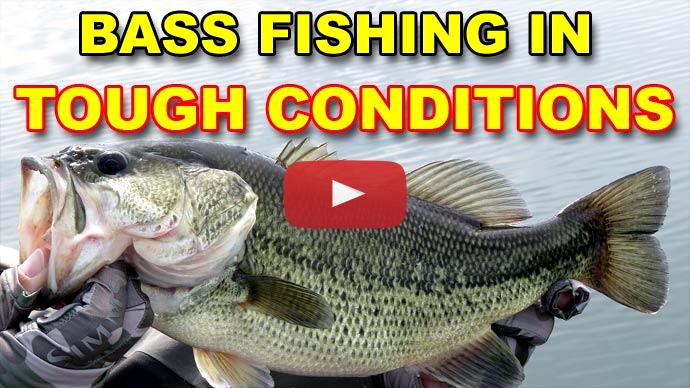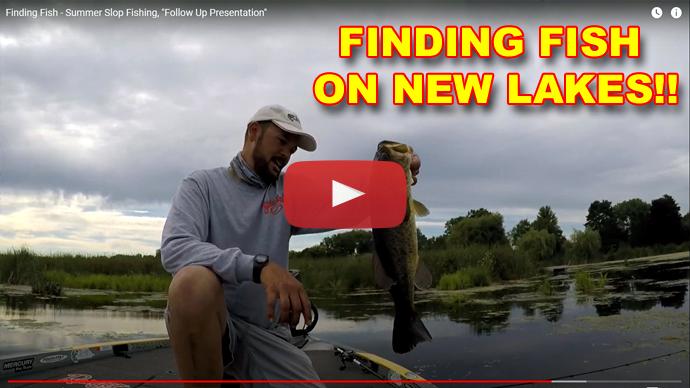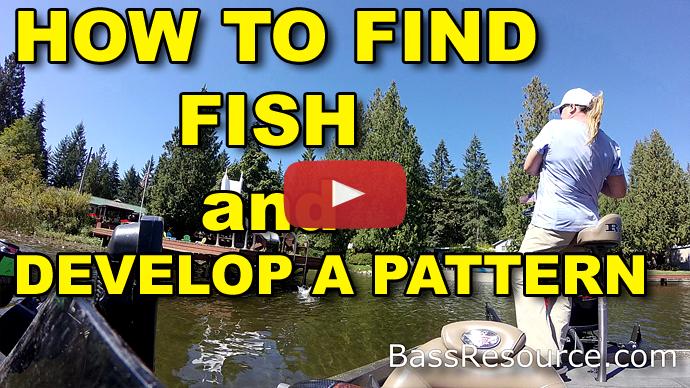All right, here's a question we can all relate to, but it's from a beginning angler. And he asked, "Hey, what can you do when the fish just aren't biting? You got any tips?"
Yeah. I got quite a few actually. We've all been there. It happens to the best of us, but there's several things you can do. First of all, you got to maintain a real positive attitude. You've got to keep that focus. You have to understand that with every cast you make, there's a potential that you could get bit. Have that confidence and have that belief with every cast.
The reason being is it's going to enable you to focus more on that cast, and on your accuracy, and on the presentation as it enters the water, as well as the presentation on your way back to the boat or back to the shoreline. It's a focus thing and a concentration thing. If you are not confident in what you're doing and you're not confident the fish are going to bite, then you're not going to be paying close attention to what you're doing. You'll get sloppy, you may miss subtle bites, and you may miss out on an opportunity to catch a lot of fish. So maintaining a positive attitude is absolutely critical to catching more fish.
The next thing you should do is slow down. Sometimes a fish just don't want to chase a fast-moving bait like a spinnerbait, or a crankbait, or maybe your favorite topwater. Don't try to force it. If they're not willing to bite it, then slow down and move to a slower-moving presentation like a jig, or a worm, or maybe a drop shot, or a split shot presentation, and that can often elicit more bites. The other thing you can do is downsize on your lures.
Go to a three-and-a-half-inch tube jig, or maybe a four-inch finesse worm. I know a lot of guys that fish five-inch Senko-type worms, and sometimes I'll move down to a four-inch or even a three-inch, and I'll start catching a whole bunch. Matter-of-fact, I'll put those on the back of a split shot sometimes, and I'll start catching a lot more fish when I wasn't getting any bites before. So just downsizing your lures and slowing down oftentimes, you can get a lot more bites.
Now, if you've tried all this stuff and you're still not catching fish, don't despair. One of the key things that I do every time I go out fishing is I want to learn something new. I want to have a key takeaway every time I get off the water. So even if the fish aren't biting, take this time, this opportunity to learn some stuff. For example, if you're not familiar with the lake very much, go out there and motor around. Go check it out. Go to areas you haven't been before, seen before, and start taking a look at it.
If you fish from the shoreline exclusively, go drive around the lake. Look for other areas and opportunities where you can fish from the shoreline, places you've never seen before perhaps. Get an idea of what's out there. If you're on a boat, you can also maybe...this is the time to learn your electronics, I mean, if you aren't very familiar with your electronics, you don't feel comfortable with them. One of the things that I used to do, I'd go over an area that I knew what was there, and I graph over it.
And I'd watch my electronics, and what does it look like on that screen versus what's really below, and I get a better idea of how to interpret what I see on the graph. That is really valuable for when you're fishing new areas that you haven’t been on before. Now you have a better idea what's down there because you have a better understanding of how to interpret your graph, for example, or start playing with the different settings on your graph and take a look in how that changes, what things look like on your graph to what's below.
Also, it's a good opportunity to learn new techniques. Now, again, maybe the fish aren't biting, but say, for example, you don't feel very comfortable walking the dog with a Zara Spook, or maybe you've never tried it before. Now is a good time to practice and learn how to get that technique down. It does take some practice and timing to figure out how to walk a dog with a Zara Spook or walk a dog with a frog, for example, any kind of technique like that. Practice it now when the fish aren't biting, so when the fish are biting on that technique, now you're spending more time catching fish versus learning how to actually work the bait.
So always figure out some way to at least learn something new when you come off the lake, and that way you don't feel your day was wasted and that, "Boy, I just blew it." You know, you can really come down on yourself sometimes if you're not catching fish. But if you can at least walk off the lake going, "Boy, I learned a lot of stuff today, even though I didn't catch any fish," that will help you with your positive attitude and will help you become a better angler. So I hope that helps.



